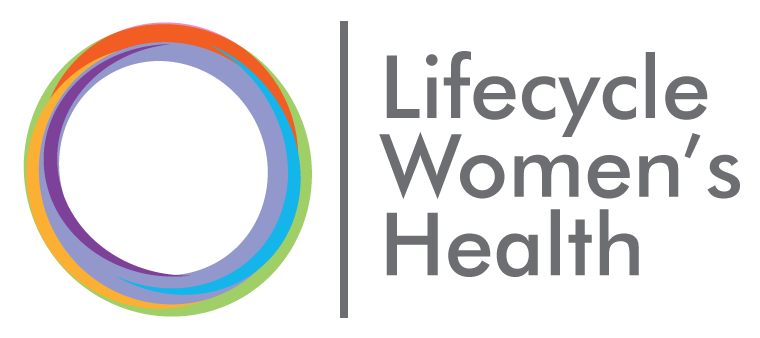Welcome Menopause!
Welcome Menopause!
It has been six years since I left corporate midwifery and opened Lifecycle Women’s Health. I am embarrassed to admit it, but I embarked on this venture without an established practice plan. Not an approach I would recommend if I had to do it again. I thought I would deliver women’s health care in the way I had been taught: using hormonal contraceptives and other medications to suppress symptoms. While many women felt better, no one was getting well. But, I did not know how to practice any other way. It was how I was taught and it was all I knew.
However, I quickly learned from some of my greatest teachers, the women I care for, that there was another, better way.
At the beginning of my fledgling new practice in rural Maine, I was far from busy. When I was lucky enough to see a patient, I had plenty of time to step back and listen to my clients, I mean really listen to what they needed from the health care system. Women were sick and tired of feeling sick and tired. They wanted to get to the root cause of their issues. They did not want band-aids.
This was especially the case for women in midlife. Women in their late 30s and beyond were having changes in their menstrual periods, their moods, their skin, their sleep, and their weight. They felt their healthcare providers were dismissive of these symptoms or had no answers. Many patients relayed stories of being told by their healthcare providers that their symptoms were normal, there is nothing to be done, and just ‘suck it up”.
Menopause health has been ignored in medical education, even in Obstetrics and Gynecology (OB/GYN). OB/GYN is a surgical specialty focused primarily on pregnancy and childbirth. A recent study found that only 31.3% of OB/GYN residency programs include a menopause curriculum and even fewer residents get hands-on experience during training, even though 100% of their patients will eventually be in menopause. A 2017 survey of 20 United States internal medicine and family practice residency programs found that only 6.6 % of residents felt they were adequately prepared to manage menopausal patients effectively.
Menopause care was largely absent from my Nurse Practitioner and Nurse Midwifery training programs, so I was uneducated as well. And so I listened to what women felt they needed from the health care system and I learned. Women did not want to feel erased. They did not want to be invisible. They did not want to wait around for a healthcare problem to arise so it could then be treated with medicine and surgery. They wanted preventive care. They wanted to feel better. They wanted to be seen!
Last year the New York Times published an article entitled Women Have Been Misled About Menopause. Since then I have seen the tide begin to turn, slowly but surely. There is an uptick in menopause health in the news. Women are beginning to ask for help without feeling dismissed, embarrassed, or riddled with shame. Fewer and fewer women are suffering in silence. They are speaking up for menopause care!
Each year at least 1 million women enter menopause. It has been estimated that there will be 90 million people in menopause in the United States by 2060. Menopause care must be better understood and mainstreamed to meet the needs of this growing population. I feel privileged and grateful to everyone along the way who helped me become a menopause advocate. Because of you, I am well-poised to provide holistic menopause care.
When women focus on healthy lifestyles and find joy in their bodies, menopause can be a time of power and strength. We are smarter and wiser as we get older. We are happier too. We have learned from our life experiences. And we deserve to feel our best.
Here are some tips to help you get the most out of what should be the best years of your life!
1. Food is your best medicine
Take a food-first approach and supplement with non-food sources only when necessary. Some basic recommendations include:
25-35 grams of fiber daily from food
20-30 grams of protein at each meal, primarily from plant-based food: nuts, seeds, beans, unprocessed soy, etc
Stay well hydrated with water
Get most of your calcium from nondairy food sources
Include healthy fats in your diet such as avocado and olive oil
2. Stay active and build strength.
Walking is wonderful, but you also need to move enough to increase your heart rate for at least 30 minutes five times a week and include strength exercises with weights or other heavy objects several times a week. Not only will this support bone, hormone, and muscle development, but it will help improve your brain health as well. Women are more likely than men to develop dementia, so this is very important
3. Worsening urinary symptoms, while common, are certainly not normal and are preventable.
At least 50% of women experience incontinence, and that number increases with age, however, you would never know this statistic since it is not a hot topic of conversation. Also, urinary tract infections can be one of the biggest reasons women seek emergency services. Both of these issues are preventable with pelvic floor physical therapy, low-dose vaginal estrogen, pessaries, and sometimes surgery. Women should never have to suffer with incontinence.
4. Sex does not have an expiration date
Thank you Joan Price for that quote. Everything changes as we age, but that does not mean sex has to get worse. In fact, many women report intimacy and sexual pleasure improve as they age. It just may look different, and require some education on changing bodies and communication skills. In addition, there is local vaginal estrogen which helps to make vaginal tissue more lubricated and elastic. Recent data have found local estrogen to be very safe, even among breast cancer survivors, since very little, if any of the hormone gets absorbed into the bloodstream.
5. For the majority of women, low-dose hormone therapy is safe and the benefits outweigh the risks
In the decades since the poorly executed but widely embraced Women’s Health Initiative trial, there is a much better understanding of the safety of systemic menopause hormone therapy. The benefits clearly outweigh the risks for most women. There are some contraindications including those with a history of cardiovascular disease, blood clots, GYN cancer, liver disease, or undiagnosed vaginal bleeding. Also, the recommendation is to start hormones as close to the menopause transition as possible and less than 10 years from the last menstrual period. Menopause hormone therapy (MHT) is safe, effective, and evidence-based. Everyone in menopause deserves to know about the benefits of MHT.
6. Disease prevention is possible!
Prevention trumps treatment with pharmaceuticals and surgery any day, and the sooner you start making lifestyle changes, the sooner you will feel better. It is never too late. The basics include:
Don’t smoke
Drink alcohol and caffeine in moderation, or not at all
Eat fruits and vegetables every day
Prioritize sleep
Stay active
Engage in joyful activities with positive people.
These are the hardest tasks to manage and will always be a work in progress. However, you cannot put them on the back burner. So be kind to yourself. Take one step at a time. Embrace the change, because you are worth it!
Susan Kamin is a certified nurse-midwife and a certified sexuality counselor. After many years of helping people give birth and be born, she is now providing personalized holistic well-body care at Lifecycle Women's Health in Brunswick, Maine. She sees people across the lifespan with a focus on menopause, hormone, and sexual health care. She enjoys sharing her wisdom in the hopes of helping people find pleasure, knowledge, and empowerment in their bodies as they go through all of life's transitions.






